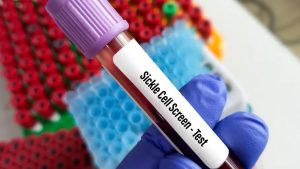Hospitalisation
rate in the US due to COVID-19 infections is taking a nosedive as the country
marked its lowest record of new virus cases in the past two weeks since
December 1, reports CNN.
According
to the COVID Tracking Project, around 97,000 patients remained hospitalised as of
Saturday, a number far less as compared to the early January numbers that touched more than 130,000 patients under observation.
As far
as new COVID-19 cases are concerned, the numbers fell to 136,252 from around
166,000 in the US the previous day according to John Hopkins University data
while the death toll due to coronavirus infection dived to 2,641 from around
3,600 the previous day.
While the declining numbers may sound like a good news to grievously COVID hit country like the US, health experts in the nation believe that the worst has not yet passes as the seven day average of the infection cases turnout remained unchanged.
A CNN
reports also suggest that the other COVID-19
numbers in the US continues to be worrisome as the average number of daily deaths is more
than double what it was earlier in January.
In the
words of Dr. Paul Offit, a member of the FDA’s vaccine advisory committee, “Right now is the worst of possible worlds because of winters” adding that the time when
people tend to get out and interact even more and a significant number of
American people sill downplay the risk of coronavirus and avoid wearing masks
and practicing social distancing.
Dr. Offit further told CNN that the next six to eight weeks are going
to be rough on the US in terms of COVID-I9 cases.
“I think
we could have another 100,000, 150,000 deaths.” he added.
According
to the University of Washington’s Institute for Health Metrics and Evaluation
estimations on the other, nearly 120,000 more Americans are at the risk of
losing their lives to COVID-19 over the next few months.
So
far, the US remains the worst country to be impacted by the coronavirus pandemic with the world’s highest number of cases and deaths at 25,909,336 and
436,541, says John Hopkins University data.






